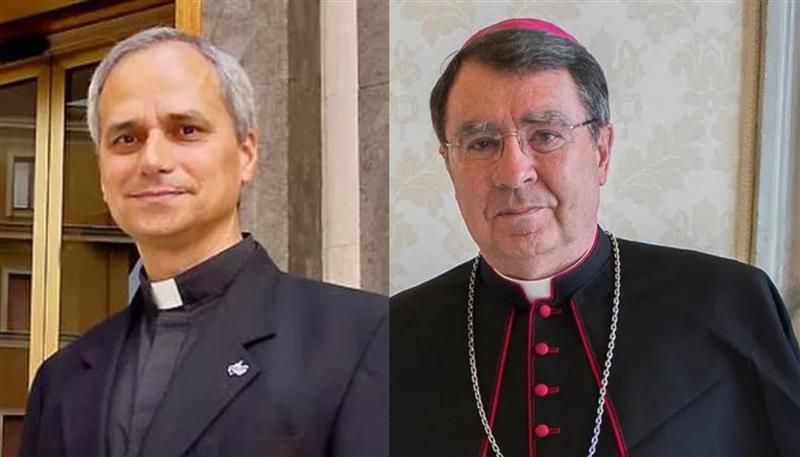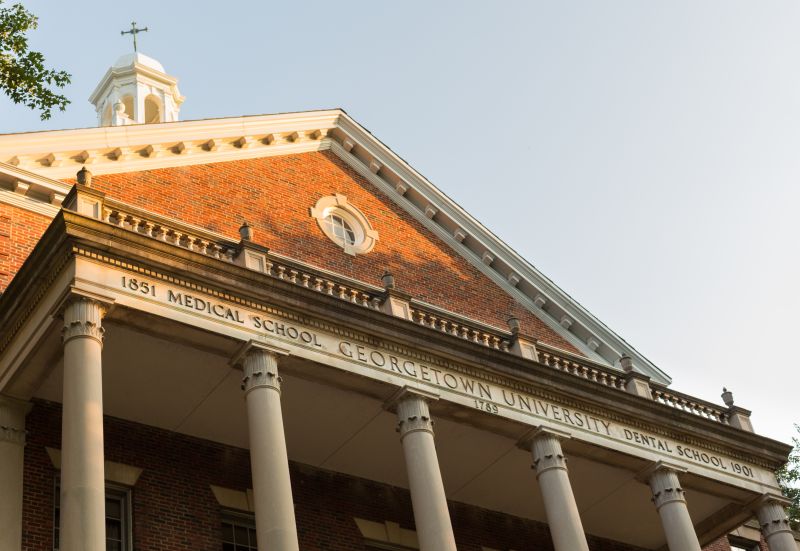 Archbishop Robert Prevost and Archbishop Christophe Pierre were among the 21 named cardinals by Pope Francis on Sunday, July 9, 2023. / Frayjhonattan, CC BY-SA 4.0, via Wikimedia Commons/L’Osservatore Romano
Archbishop Robert Prevost and Archbishop Christophe Pierre were among the 21 named cardinals by Pope Francis on Sunday, July 9, 2023. / Frayjhonattan, CC BY-SA 4.0, via Wikimedia Commons/L’Osservatore Romano
Washington D.C., Jul 10, 2023 / 15:20 pm (CNA).
Pope Francis named 21 new cardinals Sunday, two of whom, Archbishop Robert Prevost and Archbishop Christophe Pierre, have deep ties to the Church in the United States.
The president of the U.S. Conference of Catholic Bishops, Archbishop Timothy Broglio of the Archdiocese for the Military Services, USA, responded to the pope’s announcement in a Sunday statement, calling on the faithful to pray for the American Church’s newest cardinals.
“Please join me in praying for Cardinal-designate Prevost and Cardinal-designate Pierre as they continue their lives of service to the universal Church,” Broglio said.
Broglio added that “for the Church in the United States, their ministry has been a true blessing. Our episcopal conference rejoices in this sign of recognition of these distinguished Churchmen.”
Prevost and Pierre will be formally elevated to the rank of cardinal, the highest position in the Church besides the pope, on Sept. 30.
So, who are the two new cardinals with U.S. ties?
Archbishop Robert Prevost
Archbishop Robert Prevost, 67, is the new head of the Vatican’s Dicastery for Bishops, an influential position responsible for recommending new bishops to the pope.
Born in Chicago, Prevost graduated with a bachelor’s degree in mathematics from Pennsylvania’s Villanova University in 1977. That same year he joined the Order of St. Augustine, also known as the Augustinians, making his solemn vows in 1981. He earned a master’s of divinity degree from Chicago’s Catholic Theological Union in 1982 and was ordained an Augustinian priest that same year. After being ordained, Prevost earned a doctorate in canon law from Rome’s Pontifical College of St. Thomas Aquinas in 1987.
He returned to Chicago for a short time in 1987, serving as pastor for vocations and director of missions for the Augustinian Province of Chicago. Prevost was then sent to Peru, where he served the Augustinians in various capacities including as a regional ecclesiastical judge and teacher of canon law in the diocesan seminary for Trujillo, Peru, for 10 years.
After being elected the head of the Augustinian Province of Chicago, Prevost returned to the U.S. in 1999. He was elected prior general of the Augustinians in 2001 and then reelected in 2007, serving as head of the order until 2013.
Pope Francis appointed Prevost as apostolic administrator of Chiclayo, Peru, in 2014, and he was ordained titular bishop of Sufar that same year.
While serving the Church in Peru, Francis made Prevost a member of the Dicastery for the Clergy in 2019 and then a member of the Dicastery for Bishops in 2020. On Jan. 30, Francis made Prevost prefect of the Dicastery for Bishops, a position he took up succeeding Cardinal Marc Ouellet on April 12.
Archbishop Christophe Pierre
Archbishop Christophe Pierre, 77, is the current apostolic nuncio to the United States, a position in which he serves as the Holy See’s representative to America. Pierre has extensive experience in the Church’s diplomatic corps and can speak French, English, Italian, Spanish, and Portuguese.
Born in Rennes, in northwestern France, Pierre attended school in Antisirabé, Madagascar, Saint-Malo, France, and Marrakesh, Morocco. He entered the seminary in Rennes in 1963. His time at the seminary was interrupted by two years of service in the French military, 1965-1966. After returning to the seminary, he was ordained a priest in 1970.
Pierre earned a master’s degree in sacred theology from the Catholic University of Paris in 1971 and a doctorate in canon law from the Pontifical Lateran University in 1977.
After studying at the Pontifical Ecclesiastical Academy in Rome, Pierre went on to serve the Church as a diplomatic representative to New Zealand and the islands of the Pacific Ocean (1977–1981), Mozambique (1981), Zimbabwe (1982–1986), Cuba (1986–1989), Brazil (1989–1991), and as the Holy See’s permanent observer to the United Nations in Geneva (1991–1995).
In 1995, Pierre was ordained a bishop in Saint-Malo, France. Pope John Paul II appointed him as the apostolic nuncio to Haiti, a position he held from 1995 to 1999. He then served as the apostolic nuncio to Uganda (1999–2007) and then to Mexico (2007–2016).
After the retirement of Archbishop Carlo Viganò, Pope Francis appointed Pierre apostolic nuncio to the United States on April 12, 2016.
[…]








